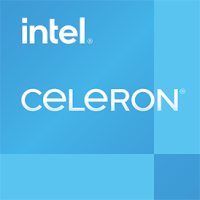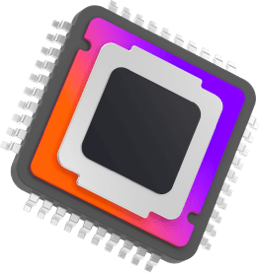| AMD Epyc 7713 | Intel Celeron 2981U | |
| 225 W | Max TDP | 15 W |
| NA | Consumo di energia al giorno (kWh) | NA |
| NA | Costo di esercizio al giorno | NA |
| NA | Consumo di energia all'anno (kWh) | NA |
| NA | Costo di esercizio all'anno | NA |
AMD Epyc 7713 vs Intel Celeron 2981U

AMD Epyc 7713 funziona con 643 core e 128 thread della CPU. Funziona su 3.68 GHz base tutti i core mentre il TDP è impostato su 225 W .Il processore è collegato al socket della CPU SP3 Questa versione include 256.00 MB di cache L3 su un chip, supporta i 8 per supportare la DDR4-3200 e presenta 4.0 PCIe Gen 128 . Tjunction mantiene al di sotto dei -- gradi C. In particolare, Milan (Zen 3) Architecture è migliorata con la 7 nm e supporta AMD-V, SVM . Il prodotto è stato lanciato il Q1/2021

Intel Celeron 2981U funziona con 2 core e 128 thread della CPU. Funziona su No turbo base No turbo tutti i core mentre il TDP è impostato su 15 W .Il processore è collegato al socket della CPU BGA 1168 Questa versione include 2.00 MB di cache L3 su un chip, supporta i 2 per supportare la DDR3L-1600 SO-DIMM e presenta 2.0 PCIe Gen 12 . Tjunction mantiene al di sotto dei -- gradi C. In particolare, Haswell U Architecture è migliorata con la 22 nm e supporta VT-x, VT-x EPT, VT-d . Il prodotto è stato lanciato il Q3/2013
Confronta dettaglio
| 2.00 GHz | Frequenza | 1.40 GHz |
| 643 | Core | 2 |
| 3.68 GHz | Turbo (1 nucleo) | No turbo |
| Turbo (tutti i core) | No turbo | |
| Hyperthreading | No | |
| Overclock | No |
|
| normal | Architettura principale | normal |
| no iGPU | GPU | Intel HD Graphics (Haswell GT1) |
| No turbo | GPU (Turbo) | 1.00 GHz |
| 7 nm | Tecnologia | 22 nm |
| No turbo | GPU (Turbo) | 1.00 GHz |
| Versione DirectX | 11.1 | |
| Max. viene visualizzato | 3 | |
| DDR4-3200 | Memoria | DDR3L-1600 SO-DIMM |
| 8 | Canali di memoria | 2 |
| Memoria massima | ||
| ECC | No |
|
| -- | L2 Cache | -- |
| 256.00 MB | L3 Cache | 2.00 MB |
| 4.0 | Versione PCIe | 2.0 |
| 128 | PCIe lanes | 12 |
| 7 nm | Tecnologia | 22 nm |
| SP3 | Presa | BGA 1168 |
| 225 W | TDP | 15 W |
| AMD-V, SVM | Virtualizzazione | VT-x, VT-x EPT, VT-d |
| Q1/2021 | Data di rilascio | Q3/2013 |
Cinebench R15 (Single-Core)
Cinebench R15 è il successore di Cinebench 11.5 ed è basato anche su Cinema 4 Suite. Cinema 4 è un software utilizzato in tutto il mondo per creare moduli 3D. Il test single-core utilizza solo un core della CPU, la quantità di core o l'abilità di hyperthreading non conta.
Cinebench R15 (Multi-Core)
Cinebench R15 è il successore di Cinebench 11.5 ed è basato anche su Cinema 4 Suite. Cinema 4 è un software utilizzato in tutto il mondo per creare moduli 3D. Il test multi-core coinvolge tutti i core della CPU e offre un grande vantaggio dell'hyperthreading.
Geekbench 5, 64bit (Single-Core)
Geekbench 5 è un benchmark multipiattaforma che utilizza pesantemente la memoria di sistema. Una memoria veloce spingerà molto il risultato. Il test single-core utilizza solo un core della CPU, la quantità di core o l'abilità di hyperthreading non conta.
Geekbench 5, 64bit (Multi-Core)
Geekbench 5 è un benchmark multipiattaforma che utilizza pesantemente la memoria di sistema. Una memoria veloce spingerà molto il risultato. Il test multi-core coinvolge tutti i core della CPU e offre un grande vantaggio dell'hyperthreading.
iGPU - FP32 Performance (Single-precision GFLOPS)
Le prestazioni di calcolo teoriche dell'unità grafica interna del processore con semplice precisione (32 bit) in GFLOPS. GFLOPS indica il numero di miliardi di operazioni in virgola mobile che l'iGPU può eseguire al secondo.
Geekbench 3, 64bit (Single-Core)
Geekbench 3 è un benchmark multipiattaforma che utilizza pesantemente la memoria di sistema. Una memoria veloce spingerà molto il risultato. Il test single-core utilizza solo un core della CPU, la quantità di core o l'abilità di hyperthreading non conta.
Geekbench 3, 64bit (Multi-Core)
Geekbench 3 è un benchmark multipiattaforma che utilizza pesantemente la memoria di sistema. Una memoria veloce spingerà molto il risultato. Il test multi-core coinvolge tutti i core della CPU e offre un grande vantaggio dell'hyperthreading.
Cinebench R11.5, 64bit (Single-Core)
Cinebench 11.5 è basato su Cinema 4D Suite, un software popolare per generare moduli e altre cose in 3D. Il test single-core utilizza solo un core della CPU, la quantità di core o l'abilità di hyperthreading non conta.
Cinebench R11.5, 64bit (Multi-Core)
Cinebench 11.5 è basato su Cinema 4D Suite, un software popolare per generare moduli e altre cose in 3D. Il test multi-core coinvolge tutti i core della CPU e offre un grande vantaggio dell'hyperthreading.
Cinebench R11.5, 64bit (iGPU, OpenGL)
Cinebench 11.5 è basato su Cinema 4D Suite, un software popolare per generare moduli e altre cose in 3D. Il test iGPU utilizza l'unità grafica interna della CPU per eseguire i comandi OpenGL.
Estimated results for PassMark CPU Mark
Alcune delle CPU elencate di seguito sono state confrontate con CPU-Comparison. Tuttavia, la maggior parte delle CPU non è stata testata ei risultati sono stati stimati dalla formula proprietaria segreta di un confronto tra CPU. In quanto tali, non riflettono accuratamente i valori effettivi del contrassegno CPU Passmark e non sono approvati da PassMark Software Pty Ltd.
Monero Hashrate kH/s
La criptovaluta Monero utilizza l'algoritmo RandomX da novembre 2019. Questo algoritmo PoW (prova di lavoro) può essere calcolato in modo efficiente solo utilizzando un processore (CPU) o una scheda grafica (GPU). L'algoritmo CryptoNight è stato utilizzato per Monero fino a novembre 2019, ma potrebbe essere calcolato utilizzando gli ASIC. RandomX beneficia di un elevato numero di core CPU, cache e una connessione veloce della memoria tramite il maggior numero possibile di canali di memoria

Stima dell'utilizzo elettrico


